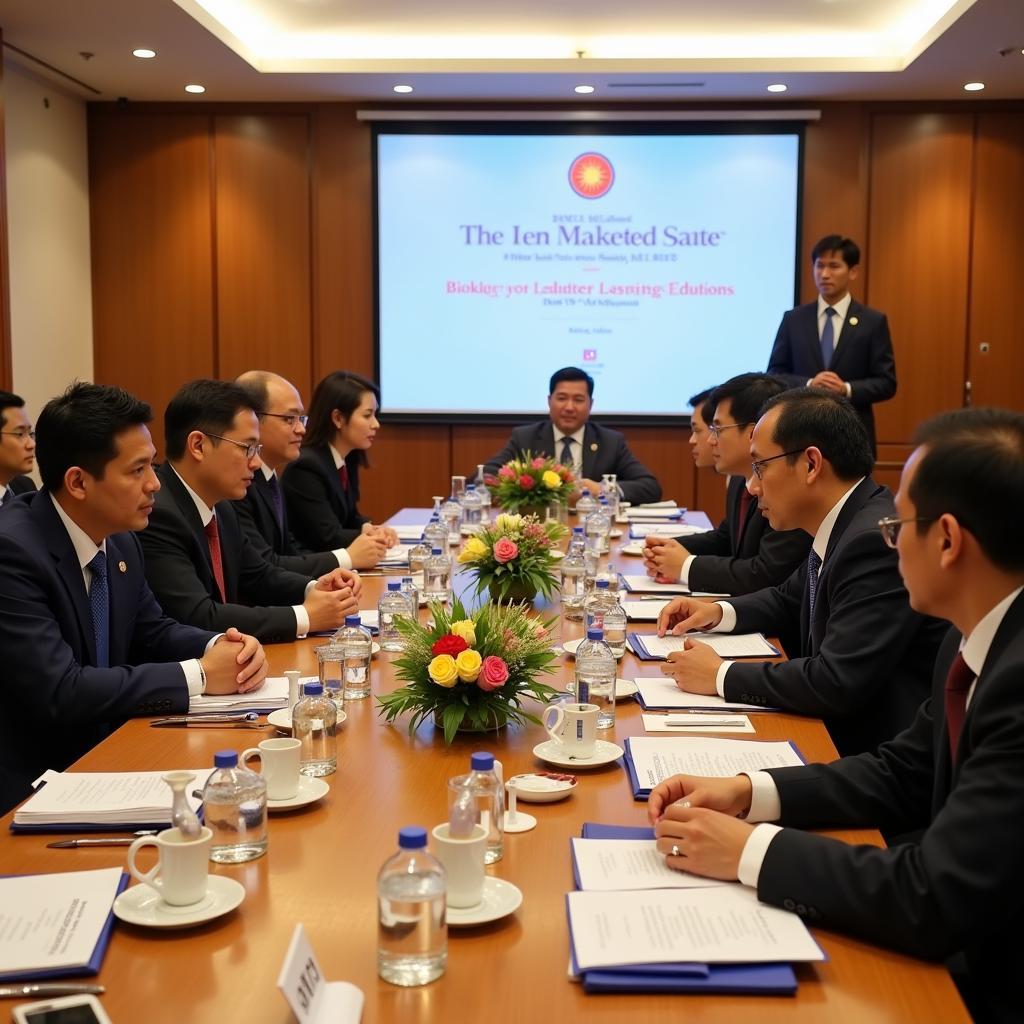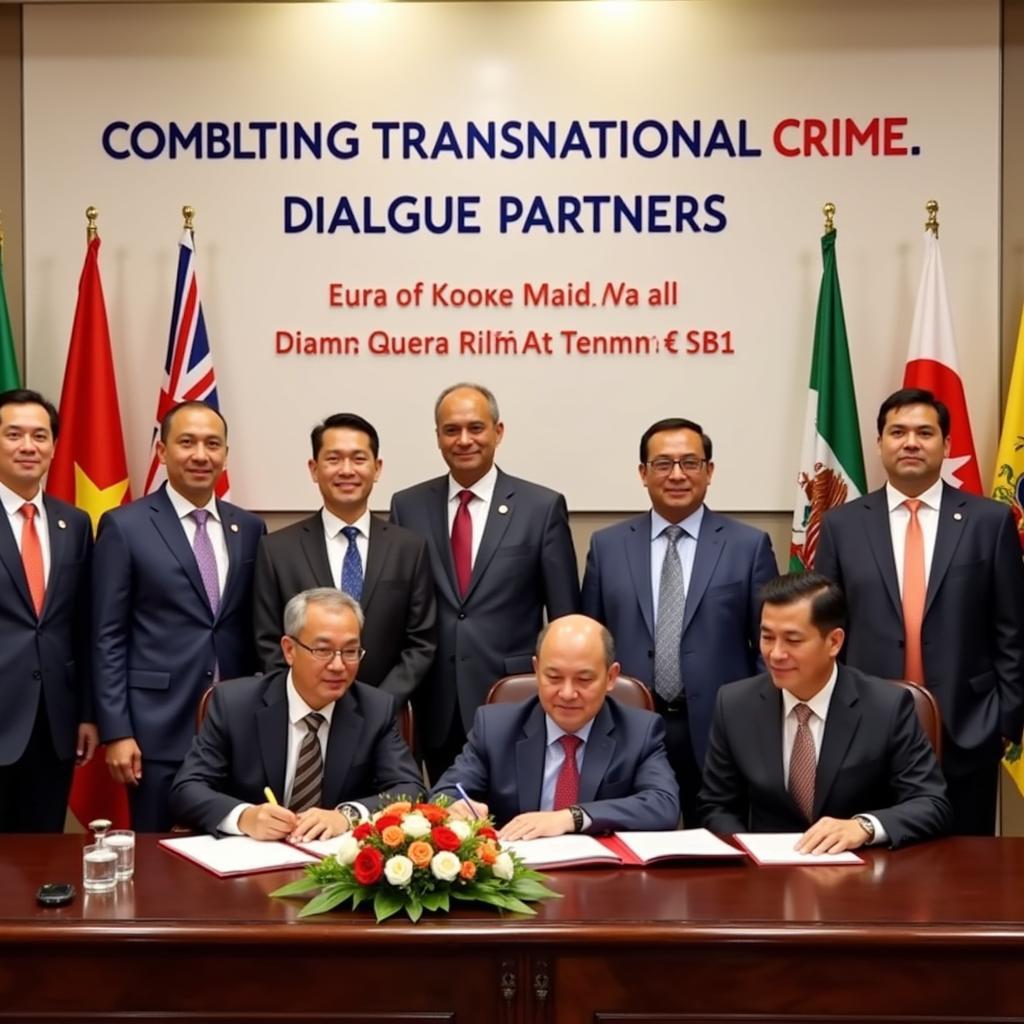The 9th Asean Ministerial Meeting On Transnational Crime (AMMTC) recently concluded, reinforcing the region’s commitment to combating cross-border criminal activities. The meeting, attended by ASEAN ministers responsible for transnational crime, served as a platform for member states to discuss and strategize collaborative efforts in addressing shared security challenges.
ASEAN’s Response to Evolving Transnational Crime
Transnational crime, encompassing illicit activities that extend beyond national borders, poses a significant threat to the peace, security, and economic stability of the ASEAN region. The evolving nature of these crimes, often intertwined with technological advancements and globalization, necessitates a dynamic and coordinated response from ASEAN member states.
 Delegates at the 9th ASEAN Ministerial Meeting on Transnational Crime
Delegates at the 9th ASEAN Ministerial Meeting on Transnational Crime
Key Focus Areas of the 9th AMMTC
The 9th AMMTC focused on several critical areas identified as priorities in the fight against transnational crime:
- Cybercrime: With the rise of digital technologies, cybercrime has emerged as a pressing concern. The meeting emphasized the need for enhanced cooperation in cybercrime investigation, data sharing, and capacity building.
- Terrorism and Violent Extremism: The threat of terrorism and violent extremism remains a significant concern for ASEAN. Member states discussed strategies to counter terrorist financing, online radicalization, and the movement of foreign terrorist fighters.
- Trafficking in Persons: The meeting reaffirmed ASEAN’s commitment to combating trafficking in persons, particularly women and children. Discussions centered around strengthening victim identification and support mechanisms, enhancing law enforcement cooperation, and addressing the root causes of trafficking.
- Drug Trafficking: The illegal drug trade continues to pose serious challenges to ASEAN. The meeting underscored the importance of intelligence sharing, cross-border operations, and demand reduction strategies in tackling drug trafficking networks.
Strengthening Partnerships for Enhanced Cooperation
Recognizing that transnational crime cannot be addressed in isolation, the 9th AMMTC emphasized the importance of partnerships:
- International Organizations: Collaboration with international organizations, such as the United Nations Office on Drugs and Crime (UNODC) and INTERPOL, is crucial for sharing best practices, accessing technical assistance, and enhancing operational capabilities.
- Dialogue Partners: ASEAN’s dialogue partners play a vital role in supporting the region’s efforts to combat transnational crime. Joint initiatives, capacity building programs, and information exchange mechanisms are key aspects of these partnerships.
 Representatives signing an agreement at the ASEAN Ministerial Meeting on Transnational Crime
Representatives signing an agreement at the ASEAN Ministerial Meeting on Transnational Crime
The Way Forward: A Collective Approach to Security
The 9th ASEAN Ministerial Meeting on Transnational Crime underscored the importance of a collective and coordinated approach to addressing complex security challenges. By strengthening regional cooperation, enhancing partnerships, and embracing innovation, ASEAN can effectively combat transnational crime and create a safer and more secure region for its people.

